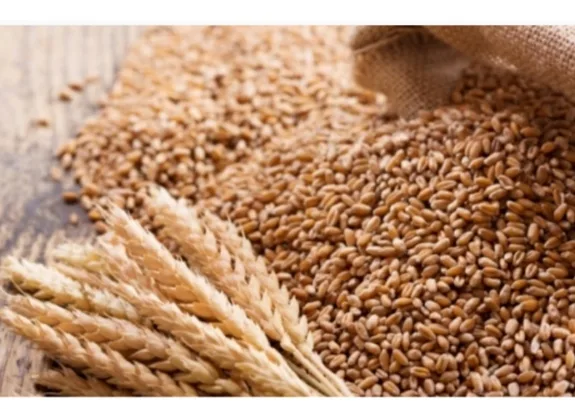The government of Nigeria has set an ambitious target of achieving 472,000 metric tonnes of wheat production by the conclusion of the dry season wheat farming program.
Mr. Ishaku Buba, National Project Coordinator for the National Agricultural Growth Scheme and Agro Pocket (NAGS-AP), made this announcement during the NAGS-AP Stakeholders Review and Planning meeting held in Abuja on Thursday.
The targeted production is based on an average yield of four metric tonnes per hectare. The initiative encompasses fifteen states, namely Adamawa, Bauchi, Borno, Gombe, Jigawa, Kaduna, Kano, Kebbi, Katsina, Niger, Plateau, Sokoto, Taraba, Yobe, and Zamfara.
Stakeholders are actively assessing the progress of the 2023/2024 dry season wheat production initiative, a part of the broader NAGS-AP project that focuses on four primary crops: wheat, rice, maize, and cassava. Mr. Buba emphasized the program’s initial concentration on wheat production in the 15 identified states.
He detailed, “The implementation under the 2023/2024 dry season program was designed to occur in two phases, focusing on the wheat value chain from Nov. 15, 2023, to Dec.15, 2023, with an extension to Dec. 20, 2023, for Jigawa and Borno. Rice, maize, and cassava value chains are slated for January – February.”
As of Dec. 21, 2023, 96.47% of the targeted 123,000 hectares had been cultivated, totaling 118,657 hectares. Mr. Buba expressed confidence that, by the end of the wheat production program, an estimated 472,000 metric tonnes of wheat would be realized.
Nigeria has long grappled with a wheat production shortfall, relying heavily on imports to meet domestic demands. The recent global supply shortage, triggered by the conflict between Russia and Ukraine and the breakdown of the Black Sea grain agreement, has further intensified the situation. Data from the National Bureau of Statistics (NBS) foreign trade report for the past four quarters indicates that Nigeria spent approximately N970.22 billion on wheat imports from October 2022 to September 2023.
This strategic move towards enhanced wheat production aligns with Nigeria’s efforts to secure food security and reduce dependency on international markets, especially in the face of global uncertainties impacting supply chains.










Join our Channel...